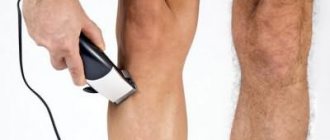How hair grows during pregnancy
From the first day of pregnancy, hormonal changes begin that affect the entire woman’s body. The effects of hormonal fluctuations affect both well-being and appearance. Throughout pregnancy, the condition and rate of hair growth may change several times.
Instructions
- In the first trimester, many women complain that their hair has become oilier than before, is falling out more, and has taken on a dull and lifeless appearance. This is due to the body’s adaptation to a new state. Often, at the beginning of pregnancy, expectant mothers suffer from toxicosis, which does not allow them to eat normally, leading to a lack of nutrients, and sometimes to dehydration. In such a situation, the hair does not have enough nutrition, and its appearance quickly deteriorates. Usually by the beginning of the second trimester the situation returns to normal.
- Towards the middle of pregnancy, the natural hair growth cycle changes under the influence of hormones. Typically, hair grows for several years, after which it enters a resting phase, remaining in it for 2-3 months, and then falls out. At the same time, no more than 10-15 percent of the total amount of hair is in the resting phase, the rest are in the growth phase. During pregnancy, the resting phase lengthens and less hair falls out.
- Gradually, some of the hair that was previously in the growth phase also enters the resting phase, but they are in no hurry to fall out. The total amount of hair on the head increases, the hairstyle becomes noticeably thicker and more voluminous. Many women note that their hair has also become shiny and less greasy than before. Sometimes there is a change in the structure of the hair - curly ones straighten, and straight ones lie in intricate waves.
- Approximately three months after giving birth, the effect of the hormones that did not allow hair to fall out ends, and all the hair that was in the resting phase leaves its owner. Young mothers are usually very afraid of increased hair loss, but a month or two later it stops and the natural life cycle of the hair is restored.
- A less pleasant situation occurs less frequently - although hair during pregnancy becomes thicker, its appearance leaves much to be desired, the strands quickly become greasy and look weakened or, on the contrary, dry out more than before and break. It is also associated with fluctuations in hormonal balance. Fortunately, this hair condition does not last long - a few months after giving birth, the hair usually becomes the same as before pregnancy.
- Hair during pregnancy requires more careful care than before. It is better to reduce or eliminate the chemical load (coloring, highlighting, curling) - although the opinion that hair dye is harmful to the unborn baby is not confirmed, regular inhalation of caustic fumes will definitely not benefit either the child or the mother. You can cut your hair without restrictions.
Veresk*
During pregnancy, many pregnant women’s hair, on the contrary, becomes dull and begins to fall out. In our consultation, I have not seen pregnant women oversaturated with vitamins and minerals - the child takes everything
Oksana Kirkizh
Yes they grow. They grow due to changes in hormonal levels, and will begin to fall out later when the baby is born and you start breastfeeding and not getting enough sleep. (I've already gone through this stage twice). When I finished feeding, after six months the body was restored and the hair began to grow back.
I can’t say about myself, I have a daughter, but my mother, when she was pregnant with her brother, simply “got hairy”!) Within a year, her hair grew below her shoulders. but the hair on my legs began to grow much better! Possibly due to male hormones
Veronica Kalyanova
They write correctly, hormones are “to blame” for everything, and male ones at that! Hair grows well not only on the head, but it can also appear on the belly or in some other unexpected places! Then everything falls out where you want it and where you don’t want it!
Causes of excess hair on the body of a pregnant woman
To understand the reasons for the appearance of hair on a woman’s body, you need to remember what happens to her body during pregnancy:
- At the beginning of the first trimester, the level of the hormone progesterone, produced by the corpus luteum, increases significantly. It is responsible for preparing the uterus for pregnancy and helping to maintain it. The same hormone affects mood changes and natural hair strengthening. In some women, progesterone causes the tender fluff on the abdomen and chest to transform into thick, dark hair.
- Increased levels of testosterone (a male hormone) can also contribute to increased body hair. The growth of this hormone can even be dangerous during pregnancy; in some cases, drug treatment is required.
- Genetic predisposition. Despite the fact that gynecologists are skeptical about this fact, it should be noted that how thick the hair on the stomach will grow during pregnancy depends on genetics. This explains why some women have light fluff on their bodies, while others have a whole carpet of hair.
Necessary hair care during pregnancy
Proper hair care during pregnancy will help improve its appearance, health, and also prevent damage to the structure after childbirth.
WATCH VIDEO INSTRUCTIONS
After the birth of a baby, the production of estrogen decreases sharply, which often leads to fragility and loss of strands. Therefore, it is necessary to make every effort to prevent negative consequences.
- Taking vitamin complexes containing calcium, vitamins E, A and D will provide the necessary nutrition to your curls.
- While carrying a child, a woman’s body experiences a certain load, so there is no need to create additional inconvenience and discomfort. It is not recommended to pull your hair into a tight ponytail or use hairpins that put pressure on the scalp. Preference should be given to loose hairstyles.
- In cold or hot seasons, it is necessary to protect strands from temperature changes. Wear panama hats and warm hats.
- Before going to bed, it is recommended to massage your head for 3-5 minutes. This will ensure blood flow to the roots and improve hair nutrition.
- Buy a comb made from natural materials. Combing strands up to 5 times a day stimulates their growth and provides a rush of oxygen to the scalp.
- Washing your hair should be done in the same way as before pregnancy. At this time, it is better to stop using store-bought shampoos and replace them with home remedies. For this purpose, mix kefir with ground black bread in a 1:1 ratio. Egg yolks with the addition of soda and honey wash hair well and saturate it with nutrients. For dry strands, a shampoo based on yolk and 1 tbsp is suitable. olive oil.
- Hair masks during pregnancy are used only from natural products: kefir, eggs, honey, cognac. The ingredients are thoroughly mixed and applied to dry strands. The head is wrapped in a towel. The procedure lasts about 30-60 minutes. With regular use of traditional methods, you can get rid of dandruff, brittleness, and dry ends. An egg-gelatin mask contains a lot of protein. To prepare, you will need to beat 1 tbsp. gelatin powder with 1 tbsp. l. shampoo and one yolk. Apply the mixture to your curls and leave for 10 minutes.
- It is better to rinse your hair after washing, masks with herbal decoctions. They will improve the condition of the strands, strengthen the roots, which will prevent hair loss. In addition, using herbal infusions you can slightly refresh your hair color. Suitable for this purpose: chamomile, lemon, linden, coffee, oak bark, sage.
- If you decide to color your curls, use cosmetics without an oxidizing agent: tonics, tinted shampoos.
The more you pay attention to your strands during pregnancy, the healthier they will look after giving birth. This will be an excellent prevention of their loss during the postpartum period - a problem for many women. Expectant mothers should remember that after the birth of a child, their lush and thick hair will begin to noticeably thin, and their hair will become brittle and weak.
- Wash your hair only with warm water, it is advisable to use homemade shampoo or choose store-bought shampoos made from natural ingredients, without chemicals. You can also replace your regular shampoo with baby shampoo.
- Once a week, your curls benefit from hair masks made from natural products (honey, yolk, kefir) and vegetable oils (burdock, olive, almond, castor), which nourish, moisturize and strengthen the hair. Choose a mask suitable for your hair type. Don't forget to test your masks and do an allergy test.
- It is useful to rinse your curls after washing with decoctions of medicinal herbs that strengthen the hair follicles. These are nettle, chamomile, burdock root, coltsfoot. For oily hair, you can use acidified water - add a little lemon juice or vinegar.
- It is not advisable to braid your hair into tight braids or use tight elastic bands or hair clips. Give your hair maximum freedom.
- Don't let the scorching rays of the sun thin your beautiful locks. In cold weather, wear a hat that will protect them from low temperatures.
- Pregnancy is a reason to give up our assistants - thermal devices, without which it is sometimes simply impossible to style your hair. During pregnancy, it is not advisable to straighten your hair with an iron, curl it with a curling iron, or blow-dry your hair.
- It is useful for expectant mothers to massage their heads before bed, thereby improving blood circulation. Massaging the scalp promotes a rush of oxygen to the hair follicles, hair growth accelerates, and it becomes stronger. It is also useful to comb your curls with a wooden comb for a few minutes before going to bed.
We invite you to read: Washable hair dye for 1 day: which one to choose and how to make it at home
Traditional methods and recipes
There are several proven folk methods for safely removing belly hair during pregnancy.
Hydrogen peroxide
You can bleach your hair with hydrogen peroxide. To do this, wipe the problem area twice a day with a cotton pad soaked in peroxide. After a couple of weeks of regular manipulation, the hairs will become noticeably lighter. This procedure is absolutely safe for the baby, but it is worth checking the skin for an allergic reaction to hydrogen peroxide.
Grape juice
The effect of unripe grape juice on hair is similar in principle to depilatory creams. But unlike cream, grape juice does not act as quickly.
To remove unwanted hair, it will take two weeks of regular procedures. Squeeze the juice from several unripe grapes and apply it to areas with unwanted hair. It is absolutely safe and painless.
Potassium permangantsovka
You can wipe problem areas with a weak solution of potassium permanganate. To do this, dissolve several granules of potassium permanganate in warm water. Rub the pink solution onto the skin covered with vegetation twice a day. The hairs will become much thinner in just a couple of weeks.
Soda and coffee grounds
You can also get rid of belly hair using coffee grounds and baking soda; you can find several recipes in this article.
Lose weight without denying yourself your favorite foods! Eat and lose weight! Find out how! >>
How hair grows during pregnancy
Instructions
Why pregnant women grow hair on their bellies is a question that some girls in an interesting position ask.
Another question that worries expectant mothers is whether they should be removed and whether they will disappear after the baby is born.
Many women have noticed that the curls that decorate their heads become stronger during pregnancy and stop falling out. The same thing happens with other hair on the body.
The skin on the abdomen contains hair follicles, which, with the onset of a hormonal boom, begin to function in increased size.
Hair that appears on the stomach during pregnancy is a signal that a number of hormonal changes are occurring in a woman’s body. This is natural, although not very pleasant.
Specific restructuring of the body begins already in the first trimester of pregnancy.
The hormone progesterone, produced by a woman’s ovaries and adrenal glands, is responsible for beginning to prepare the uterus for bearing a fetus.
It is he who helps the body keep the embryo within its boundaries for all nine months.
The influence of this hormone cannot be blocked: if there is not enough progesterone in the female body, a miscarriage will occur, and the woman simply will not be able to bear a child.
By the way, the same hormone is also responsible for severe fluid retention in the body, which many girls note during pregnancy.
Depression, irritability and sudden mood swings are explained by the fact that progesterone affects the nervous system of pregnant girls.
If you have hair on your belly, don't panic. This is a normal phenomenon that accompanies pregnancy for many women and girls.
The systems of the female body, in which a new life is born, are under severe stress.
Hirsutism - excessive hair growth on a woman's body or male pattern hair - is a symptom of increased work of the adrenal glands, which secrete excess male hormones.
The peak activity of this organ occurs at 12 or 13 weeks of pregnancy, at the very end of the first trimester.
It is then that a small belly becomes visible, the mammary glands begin to enlarge, and the mood of the expectant mother begins to change.
Hirsutism often accompanies pregnancy, but not everyone falls victim to it.
As a rule, natural brunettes, as well as women of southern or eastern nationalities, are at risk of the appearance of dark long hair in unexpected places. Blondes also suffer from hirsutism, but much less frequently.
Excessive amounts of male hormones in the body of pregnant women can provoke the growth of unwanted hair not only on the stomach, but also on the mammary glands, sternum, face and chin.
Hair on the arms and legs may change color and thickness, becoming darker and longer.
Increased hair growth does not in any way affect the development of the child in the womb. The content of progesterone in the blood, which is responsible for hirsutism in pregnant women, on the contrary, strengthens the walls of the uterus. Therefore, the baby in your belly is under reliable protection.
Hirsutism, which is formed under the influence of hormonal changes during pregnancy, in most cases, is a temporary inconvenience.
As soon as a woman stops breastfeeding her child and her hormonal levels level out, unwanted hairs gradually thin out and disappear within a few months.
The same thing happens with the long vertical brown stripe that appears on the abdomen during the third trimester of pregnancy.
Unfortunately, there is a small percentage of women who are unable to get rid of unwanted belly and chest hair that has grown on their bodies during pregnancy.
Any woman wants to be attractive and sexy for her man. Pregnant ladies are no exception, so unwanted hairs that appear on their bodies under the influence of hormones can greatly upset them.
Many people who grow hair on their stomach or chest remove it with razors, tweezers or epilators.
A razor is not the best way to get rid of unwanted hair caused by hirsutism. If you start shaving your hair, it may not lighten or fall out after the hormonal levels return to normal, but will remain with their owners forever.
Don't want to show your man unwanted hair on your stomach or chest? The quickest way to do this is with nail scissors, which can easily trim the hairs at the very root.
Another way to help get rid of hair that appeared during pregnancy is plucking with tweezers.
If a lot of hairs have grown and removing them individually takes too much time, then you should use an electric epilator. It will help speed up the process of getting rid of hair, making it no less effective.
Hair removal during pregnancy is not suitable for all women.
We invite you to read: Hair oil: which one to choose? Top 12 best hair oils
Some women have an increased pain threshold during pregnancy, so removing hair by mechanically pulling out their rods from the bulb will seem like terrible torture to them.
Many women who are not satisfied with increased hair growth on the abdomen or chest lighten unwanted hair using folk remedies or weak solutions of chemical dyes.
Scientists have proven that external hygiene products, as well as hair dyes, do not have a detrimental effect on the development of the fetus, but not every pregnant woman agrees to apply dye from a hairdresser's store to her stomach.
Several popular tips will help you lighten the hairs on your belly, make them thinner and less conspicuous, the list of which you will see below.
In order to thin and lighten unwanted hair, you should use 3% hydrogen peroxide, which is sold in pharmacies.
With a cotton pad, generously moistened with this liquid, you need to wipe the hair growth areas twice a day. If possible, the cotton pad should be left as a compress on problem areas for 10-15 minutes.
Freshly squeezed lemon juice is good for lightening hair. If you don't want to bother with a juicer, just cut off a small slice of this citrus and rub it on unwanted hairs.
Use this remedy several times a day for as long as the problem bothers you.
For some girls, regular soda helps remove unwanted belly hair. It should be mixed with clean water in a 2:1 ratio and the resulting mixture should be applied to problem areas.
Baking soda penetrates the hair follicles and softens them, which causes unwanted hair to fall out.
White grape juice is another popular folk remedy that women apply to their skin to get rid of unwanted hair. The acids it contains help thin hairs and, possibly, get rid of them.
“Why do dark hairs grow on the stomach and chest during pregnancy?” is a common question that can be heard in the gynecologist’s office. This is a natural process that cannot be corrected from within.
You should deal with its external manifestations very carefully, because the main thing is to save the life of the child who is developing in your stomach.
Under no circumstances should you resort to radical hair removal measures. Most likely, they will leave your body on their own as soon as the lactation period ends.
Veresk*
Oksana Kirkizh
Veronica Kalyanova
Why does pregnant women's hair grow faster?
Why does pregnant women's hair grow faster? Yes, because pregnancy is a time when a woman’s body undergoes many changes. All vital organs are involved in this.
Hair is not left out either. And it's not just about the hair on your head.
Often, body hair growth terrifies a pregnant woman, but there is no need to worry, after childbirth the body returns to its normal state.
During the period of bearing a child, a woman’s body undergoes severe hormonal changes. The adrenal glands, under the influence of progesterone, produce estrogens in greater quantities. They contribute to the fact that hair:
- become thicker;
- practically stop falling out;
- are actively growing.
Pregnancy, thus, helps many expectant mothers fulfill their long-standing dream of growing long and thick hair. Do not forget that after childbirth, which is a strong stress for the body, the hair will gradually return to its previous state.
A year later, many mothers notice the beginning of hair loss during breastfeeding and afterwards in large quantities. In such cases, buying a bunch of fallout funds is just a transfer of money.
Read more about hair loss in our hair loss section.
Superstitions about hair during pregnancy
Many pregnant women, having heard enough from their mothers and grandmothers, believe in signs associated with pregnant women’s hair. One of these is the belief that pregnant women should not cut their hair. Since ancient times, owners of long braids were considered the standard of health. Therefore, cutting your hair means losing your health. There is no scientific evidence to support this belief.
Pregnant or not, a woman remains a woman. Don't forget to take care of yourself. When hair grows quickly, a haircut can be very useful, as it will make it easier to care for and get rid of split ends.
Is it possible to dye your hair during pregnancy?
The issue of hair coloring is much more serious than any haircut. Manufacturers of modern professional hair dyes unanimously insist that their products are absolutely safe and do not contain chemicals. However, their smells indicate otherwise.
voloslekar.ru
If a pregnant woman wants to dye her hair, she should weigh the pros and cons, because:
- the ammonia contained in paints enters the blood through the skin and through the placenta to the fetus, which can negatively affect it;
- allergic reactions are possible, because when hormonal levels change, the structure of the hair also changes;
- You should not radically change the color, since the changed hair structure is capable of incredible reactions;
- It is better to use henna or basma based on natural dyes, as well as tinted shampoos.
Read more about hair coloring during pregnancy here.
Please note that not all pregnant women have shiny and vibrant hair.
During pregnancy, it is possible to change your natural hair color. For example, blondes often turn into blond, while brunettes, on the contrary, become lighter. A change in structure is also possible: straight hair begins to curl, and curly hair begins to straighten.
Bad hair in pregnant women
If some people wonder why pregnant women's hair grows faster, others, on the contrary, may experience difficulties. If a woman had serious problems with her hair before pregnancy, then during pregnancy they only worsen. These include:
- fragility;
- excessive dryness;
- increased hair loss;
- hair became very thin;
- hair growth like men on the face, arms, legs and bikini area with great intensity.
Complete hair care during pregnancy
Proper hair care during pregnancy includes several time-proven methods.
Complete nutrition for mom
You shouldn’t indulge in sweets, but at the same time eat enough meat. You need to diversify the menu according to your capabilities and gastronomic preferences. Food should be beneficial and enjoyable.
Taking vitamin complexes for pregnant women
A blood test indicates a lack of vitamins in a pregnant woman’s body. If hemoglobin levels decrease, the gynecologist prescribes special medications to increase iron levels.
Choose the right shampoo for washing your hair
voloslekar.ru
Don’t forget to take care of your hair during pregnancy: wash and comb in a timely manner.
Facial hair during pregnancy
The most difficult thing to deal with is excess hair, especially on the face. Of course, after pregnancy, the hormonal levels will return to normal and the body will return to its previous state. But what to do before giving birth?!
Under no circumstances should you panic; it is harmful for pregnant women. There are so many ways to get rid of unwanted body hair.
Preferred, given pregnancy, are shaving and waxing. It is not recommended to try new types of hair removal during pregnancy, as these are quite painful procedures. Any pain causes stress in the body. And for a child there is no need for unnecessary stress.
Do you know the difference between hair removal and depilation? No? Then find out about it right now here. The most wonderful time - pregnancy - can bring discomfort to the expectant mother in the condition of her hair and its unprecedented growth in unwanted places. This is a natural reaction of the body to the birth of a new life.
At the first doubt about the condition of your hair, you need to contact a therapist and gynecologist and undergo the necessary examination.
Source: https://voloslekar.ru/rost-volos/pochemu-u-beremennyx-volosy-rastut-bystree/
Hair loss during pregnancy - what to do
Hair loss during pregnancy is not normal. If, when combing your curls, a clump of hair remains on your comb, and its appearance has deteriorated significantly, this indicates a disruption in the functioning of the body. Doctors, as a rule, identify several main causes of hair loss in expectant mothers:
- Improper hair care, use of cosmetics that are not suitable for your hair type.
- Deficiency in the body of vitamins and minerals responsible for the condition of curls and their growth. As a rule, these are B vitamins, iron, calcium, zinc and silicon.
To eliminate the problem with curls, first of all, you need to consult a gynecologist, who will determine the main reason for the profuse hair loss in the expectant mother.
Prepare a paste from 300 g of rye bread crumb and hot water (you need to steam the bread). Apply the mask to damp hair and leave it on for about half an hour, wrapping your head in a warm towel. Then wash off the rye mask without using shampoo. Rinse your hair with nettle infusion.
It is known that onion juice strengthens hair roots, and in combination with honey helps strengthen and shine them. Grate a small onion, add honey to it (4:1 ratio). Rub the mask into the hair roots, hold it on your hair for 30 minutes under polyethylene and a warm towel. Wash off with shampoo.
- Anti-hair loss mask with aloe and cognac.
For the mask you need to take yolk, honey, cognac, aloe juice - 1 tablespoon each. Mix everything and apply the mixture to the hair roots, massaging the scalp. The duration of the mask is 20-30 minutes, we insulate the head. Wash off with shampoo, rinse with nettle decoction.
Using one of the anti-hair loss mask recipes, combined with a balanced diet, taking vitamin supplements as recommended by the gynecologist and a good mood, you will forget about hair loss.
Pregnancy is not a reason to deny yourself the services of hairdressers or stylists. A woman, even in an “interesting position,” should be well-groomed, stylish and attractive. But still, the main priority for all pregnant women is the health and well-being of their baby. Therefore, many expectant mothers are concerned about the safety of cutting and dyeing hair during pregnancy.
Hair coloring during pregnancy is an issue that doctors argue about. According to some, the pigment included in hair dyes passes through the placenta to the fetus, others do not see any harm to the baby in coloring the hair. It has not yet been determined whether chemical dyes have a negative effect on the fetus.
Doctors allow pregnant women to dye their hair, but be more careful when choosing the chemical composition for hair dyeing. Hair dye during pregnancy should not contain aggressive ammonia, since inhalation of ammonia fumes negatively affects the sympathy of the pregnant woman and can harm the baby in the womb.
Pregnant women can use less aggressive means for coloring strands: tonics, tinted shampoos, which will refresh the hair color and will not harm the health and development of the baby. It is worth postponing dyeing strands in the 1st trimester and in the last months of pregnancy; in other months, pregnant women can use natural dyes for dyeing.
- You cannot perm your hair during pregnancy, regardless of the period. In addition to damaging the hair structure, chemicals are not safe for the baby's health.
- You should not resort to a procedure such as hair botox during pregnancy.
There are a huge number of popular beliefs and signs that prohibit expectant mothers from cutting their hair during pregnancy. According to superstitions, cutting curls can harm the baby, “shorten” its life or provoke premature birth. Women, worried about the future of their baby, do not know whether to listen to such warnings or ignore them.
In modern medicine there is not a single confirmation of such prohibitions. Hair cutting does not have any effect on the health of the fetus and its development. These are just prejudices that have no scientific confirmation. Cutting your hair and trimming split ends will only improve the health of your curls, give them a healthy appearance, and your hairstyle will look neater. However, especially suspicious and impressionable pregnant women who believe in omens should refrain from cutting their hair and wait until the birth of a healthy baby.
It has long been believed that cutting your hair is a bad omen. However, times change; today there is hardly a person who believes in superstitions. If a woman wants to change her image or give her hair a neat look, don’t put off visiting the hairdresser.
We suggest you read: Hair loss during menopause, what to do
However, there are some procedures that it is better to avoid:
- Perming during pregnancy is not recommended. The fact is that a toxic odor can cause shortness of breath, fainting, toxicosis;
- In the 1st trimester of pregnancy, it is better to avoid dyeing your hair, since the chemicals used in dyes can have a negative impact on the formation of the embryo. In addition, the dye can provoke an allergic reaction and simply have no effect on the hair;
- The use of curling irons and curling irons should be limited.
If it is impossible to refuse to dye your strands, use natural dyes, tonics or tinted shampoos.
Tell the master about your “interesting” situation,” he will select the most gentle coloring agents.
Dyeing curls is allowed only if:
- Pregnancy proceeds without pathologies;
- There are no serious concerns for the health of the mother and unborn child;
- Coloring agent without oxidizing agent.
In any case, before visiting the salon, it would not be superfluous to consult a doctor.
It is necessary to maintain a balanced diet. A pregnant woman should eat more fresh vegetables and fruits to provide the body with the necessary amount of vitamins and minerals.
Should you observe food restrictions during fasting? First of all, the expectant mother should think about the health of her baby. Fasting during pregnancy and giving up certain foods should under no circumstances harm both the woman and the child. If the pregnancy is going well, then a small restriction will not cause harm and will not adversely affect your health.
The main thing is that the food is complete. Your diet during fasting should include foods rich in nutrients:
- honey;
- greenery;
- nuts other than peanuts;
- dairy products;
- cereals;
- linseed oil;
- beans
Such nutrition will also have a beneficial effect on the condition of your hair. Vitamins B5, which are contained in cauliflower and nuts, will add shine to your curls. Vitamins A (vegetables of bright colors, fish) will provide elasticity and strength.
If you are concerned about hair loss, you need to have enough vitamin E (vegetable oil) in your diet, as well as zinc (liver, cheese, eggs).
Belly hair during pregnancy: boy or girl?
Most mothers try to find out the gender of their baby long before the birth. And even if the ultrasound showed a child of the same sex, women try to double-check this and find out who is sitting in their tummy: a boy or a girl.
Signs during pregnancy are associated primarily with the appearance of the expectant mother. They try to determine the sex of the child by the shape of the abdomen, the condition of the facial skin, the color of the pigment line and the increased growth of hair on the woman’s body. It is believed that if hair begins to grow rapidly on the stomach and chest of a pregnant woman, then she is carrying a boy under her heart. But in fact, reviews from women who have already become mothers completely refute this theory.
Hair condition during pregnancy
During this period, a real hormonal surge occurs in a woman’s body. The amount of estrogen increases sharply, which immediately affects the general condition:
- hair grows faster during pregnancy;
- the strands become thicker and denser;
- a healthy shine appears;
- Sometimes processes in the body change the hormonal levels so much that the structure of the hair changes completely: curls straighten or, conversely, straight curls begin to curl.
However, an absolutely opposite picture can also be observed, which does not please the expectant mother at all:
- hair becomes brittle, splits, loses shine;
- strands fall out in bunches;
- dandruff appears;
- the functioning of the sebaceous glands changes, which leads to excessive oiliness or dryness of the hair.
No matter how pregnancy affects the condition of the strands, it is necessary to care for them in any case. If your curls looked luxurious during pregnancy, after childbirth the situation can change dramatically.
Beautiful hair is, first of all, healthy
. Constant care and respect for your health will help preserve the beauty of your hair.
Significant changes occur in the body of the expectant mother; all her organs begin to function in a new, enhanced mode. But the most significant changes concern the hormonal background of a pregnant woman, which affects the functioning of a woman’s organs and systems, and hair is no exception. Hair is sensitive to all the changes that occur during pregnancy.
In most cases, the condition of pregnant women's hair evokes the admiration of others. A woman becomes prettier before our eyes: her curls become thick, strong, silky, her hair looks voluminous, and an incredible shine appears. The reason for the pleasant changes lies in the increase in the level of the female hormone estrogen, which creates favorable conditions for the growth of hair and nails. Even the most brittle and thin hair is restored and shines with health during pregnancy.
But this doesn't always happen. For some expectant mothers, pregnancy only worsens the condition of their hair: the hair becomes thinner, split, looks lifeless and falls out a lot. Slower growth and intense hair loss in a pregnant woman indicate an exacerbation of chronic diseases that she had even before the baby was conceived.
A gynecologist will help you find out the cause, understand the problem of hair loss and worsening of its condition after additional examinations and passing the necessary tests. Sometimes pregnancy can occur with complications. Against the background of worries and instability of the emotional state, a woman may experience problems with her hair.
In the 1st trimester of pregnancy, you will notice that those with oily hair type noticeably increase sebum secretion, and when combing, more and more hair remains. In women with dry hair, on the contrary, the hair becomes brittle and the scalp becomes dry. Such changes are explained by the adaptation period in the body associated with hormonal changes.
In addition, for many expectant mothers, the 1st trimester is a period of early toxicosis, during which nutrition deteriorates, and therefore the hair does not receive the vitamins and minerals it needs for growth, and the oxygen and mineral metabolism of the scalp is disrupted. But, already from the 2nd trimester, hormonal levels normalize, toxicosis goes away, the pregnant woman pays more attention to proper and healthy nutrition, including cottage cheese, fish, herbs, vegetables and fruits in her diet. Hair is saturated with vitamins, transformed and looks luxurious.
Is it possible to have eyelash extensions?
Before signing up for the procedure, you must consult with a gynecologist in advance and, if necessary, undergo tests. In the absence of absolute contraindications, extensions are permitted.
First trimester
In the first 3 months of pregnancy, women are not recommended to inject Botox, do lamination or eyelash extensions due to the fact that the systems and organs of the unborn child are actively forming in the womb. Experts recommend limiting as much as possible the contact of the active ingredients of extension preparations with the woman’s body.
The hCG hormone produced during pregnancy begins to be actively produced in the first 2–3 months: a woman has a specific reaction to the birth of a new life inside a woman. The sense of smell becomes more sensitive and if a woman previously found the smell of the adhesive composition pleasant, then during pregnancy the adhesive can cause vomiting and nausea.
In the initial period of gestation, a decrease in natural protective properties occurs; the pregnant woman’s body begins to react to external stimuli, which include solutions used during extensions.
Second trimester
The 2nd trimester is considered longer and the most important. The woman's toxicosis stops, the main systems and organs of the child in the womb are already formed. The female body is almost completely adapted to the new hormonal status. In the 2nd trimester, the following factors may interfere with eyelash extensions:
- Active movements. From the 18th week of pregnancy, the baby begins to move. A woman lying on her back for a long time may feel strong tremors. This means that the child is unhappy with the mother's uncomfortable position.
- Size of the uterus and fetus. The child, starting from the 4th month of pregnancy, actively grows, which leads to an enlargement of the uterus. The weight puts a lot of pressure on the kidneys and spine, and you may experience a frequent urge to urinate. It is difficult for a woman to lie still on her back for 1.5–2 hours.
- Allergic manifestations. Pregnant women are often allergic to the drugs used in the extension process. The eyes may water, and the woman experiences discomfort when blinking.
- Sensitivity to odors. The heightened sense of smell persists until delivery.
Third trimester
Despite the relative safety, gynecologists recommend against performing the procedure in the last trimester of pregnancy. At this time, the load on the spine and internal organs is high, the fetus together with the uterus weighs 8–10 kg. In case of multiple pregnancy, the load increases, the woman is not able to lie on a hard couch for a long time.
The growth may be affected by:
- Belly size. A cosmetologist will be bothered by a large belly; he will try to work quickly, which will affect the final result. A pregnant woman is also unable to remain still.
- Changes in hormonal status. During this period, the body is actively preparing for delivery, urgently producing prolactin and oxytocin - substances that stimulate labor. It is impossible to predict in advance how a pregnant woman’s body will react to solutions used during extensions.
- Childbirth. Childbirth is a great stress for the body, it can end in cesarean. The negative influence of any external stimuli can provoke disturbances in the psycho-emotional state of a pregnant woman
Hair during pregnancy: reviews
Yana: “Hair growth during pregnancy became very intense. Before pregnancy, I dyed my hair very often, but now I decided to give my hair a break from chemicals and switched to natural dye. I discovered henna. My hair has acquired a beautiful shade and shine and looks healthier than before pregnancy.
Maria: “I’ve never had more beautiful hair than during pregnancy!” I thought the vitamins had an effect. Then I found out that these are all our female hormones. The hair was chic, like in fashion magazines. But I also took care of them: I made masks every week with burdock oil and yolk, and painted them only with henna. All these procedures strengthened them even more.”
Taking good care of your hair and using homemade masks and shampoos will prolong the attractiveness of your curls for a long time and keep them healthy even after the baby is born.
How to get rid of hair
Doctors, and many women who have given birth, who were tormented by the problem of belly hair during pregnancy, unanimously repeat that there is nothing to worry about! Six months or a year after the birth of the baby, the woman’s hormonal levels will be restored, and the excess hair will fall off by itself. But if hypertrichosis causes discomfort to the expectant mother, then she can resort to a safe method of hair removal.
- Shaving with a regular razor is completely safe for both mother and baby . For the procedure, you will additionally need shaving foam and lotion, which will soothe and moisturize the skin after the procedure. The razor should be moved in the direction of hair growth. The effect of shaving will last no more than a few days, after which the stomach will again be covered with stubble.
- Removing hair by tearing out the skin using sugaring, depilatory and wax will allow your stomach to remain smooth much longer than after regular shaving - up to several weeks. Before depilation, you should take a shower and do a gentle exfoliation. After waxing, apply moisturizer or lotion to your skin. The procedure is suitable for women who have resorted to it more than once before pregnancy, otherwise there is a risk of unpleasant and even painful sensations. There is also a risk of discovering ingrown hairs in the skin after a few weeks.








